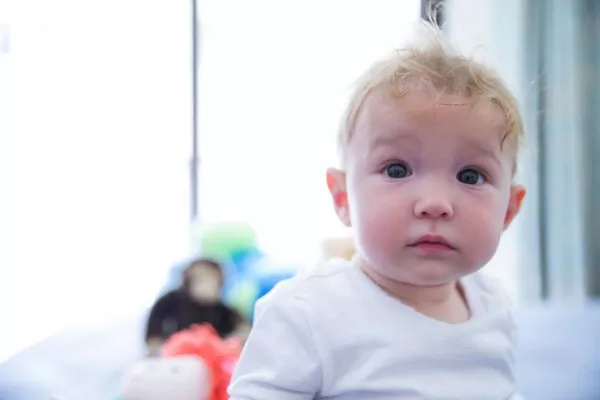When it comes to the fascinating journey of child development, one of the most eagerly anticipated milestones for parents is the moment their little one starts crawling. This is a momentous step towards independence and mobility. However, the age at which infants begin to crawl can vary significantly from one baby to another. In this comprehensive guide, we’ll delve into the various factors that influence when babies start to crawl, the stages of crawling development, and how it ties into their overall motor skills.
What Determines the Age of Crawling for Infants?
Crawling is a crucial part of an infant’s journey towards becoming a toddler. While there is no fixed age when all babies begin to crawl, several factors influence this development:
Muscle Strength: The development of a baby’s muscles, particularly those in the neck, shoulders, and core, is critical for crawling. Infants need these muscles to hold themselves up and move.
Exploration and Curiosity: Babies are naturally curious. Their desire to explore their surroundings can motivate them to start crawling.
Development of Motor Skills: Crawling is an essential milestone in an infant’s motor skill development. It helps improve coordination, balance, and muscle control.
Parental Support: Encouragement and a safe, stimulating environment provided by parents can significantly impact when a baby starts to crawl.
Stages of Crawling Development
Crawling is not a one-size-fits-all process. It involves several stages, each with its characteristics:
Commando Crawl: Many infants start with this style, which involves dragging themselves forward using their arms. It’s typically seen around 6-7 months.
Classic Crawl: This stage involves a baby using alternate hand and knee movements, usually starting between 7-10 months.
Bum Shuffle: Some babies prefer to scoot on their bottoms rather than crawl on all fours. This stage may occur between 8-11 months.
Bear Crawl: This is a more advanced stage of crawling, where a baby moves on hands and feet, similar to a bear. It usually happens between 9-12 months.
Crawling and Motor Skills
Crawling is a fundamental building block for an infant’s motor skills. As babies progress through the stages of crawling, they gain numerous benefits:
Improved Balance: Crawling helps infants develop better balance and coordination as they learn to distribute their weight.
Strengthened Muscles: The act of crawling engages various muscle groups, which in turn contributes to overall strength and endurance.
Enhanced Cognitive Skills: Crawling requires spatial awareness, problem-solving, and decision-making skills, all of which contribute to cognitive development.
Encouraging Crawling in Infants
Parents can play a significant role in supporting and encouraging their babies as they embark on their crawling journey. Here are some tips:
Tummy Time: Regular tummy time sessions from an early age can help babies build the muscle strength needed for crawling.
Safe Environment: Create a safe and baby-proof space where your infant can explore without risk.
Interactive Play: Engaging toys and activities can motivate babies to move and explore their surroundings.
Parental Encouragement: Be a cheerleader for your baby’s milestones. Offer praise and encouragement during their crawling attempts.
Crawling Delays and When to Seek Help
While there is a wide range of what’s considered normal when it comes to crawling, if your baby shows significant delays in reaching this milestone, it might be worth consulting a pediatrician. Potential causes of crawling delays could include musculoskeletal issues, prematurity, or sensory processing difficulties. Early intervention can address any underlying concerns.
Conclusion
In conclusion, the age at which infants start crawling can be a highly individualized process influenced by various factors like muscle development, curiosity, and parental support. Understanding the stages of crawling development and its impact on motor skills can help parents provide the right environment for their little ones. Remember, every baby is unique, and as long as they are making progress, there’s no need to worry. Encourage and celebrate each step of your baby’s development, and enjoy the incredible journey of watching them grow.


